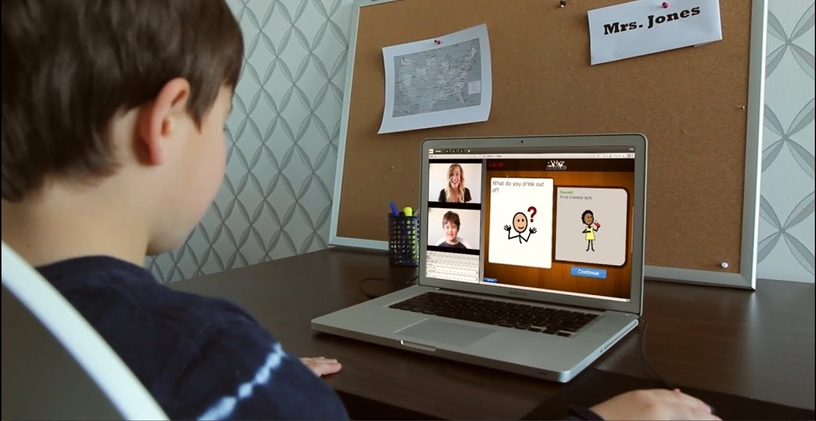How to Support Adult Children Struggling With Mental Health

Katie Bradeen of Colorado Springs, began to worry about her 20-year-old son, Ryan, when he came home for Christmas break of 2020. She said he had a “gray demeanor” and “he seemed to be in slow motion.”
Though Mr. Bradeen was on campus for his sophomore year of college, the social distancing and virtual classes during the pandemic were challenging, especially for him as a theater major. The winter of 2021 “was even more difficult and excruciating than the fall 2020 semester,” he said.
His mother didn’t think he’d be open to a face-to face conversation, so she left a note on his pillow, written on pink heart stationery. She said she wouldn’t pry, but was “available to listen anytime he wants.” Mr. Bradeen said that he had been wanting to get counseling for a while but his mom’s raising the issue made him feel he had the “thumbs up.” He started therapy early in 2021, and his mother said she can already see the difference; there’s “more laughter and jokes, less grumpiness.”
Many parents like Ms. Bradeen were navigating the sticky territory of how to help young adults with mental health issues long before Covid-19. But the pandemic brought greater challenges, taxing already vulnerable young adults even more.
Data from May 26 to June 7 from the Centers for Diseases Control and Prevention’s Household Pulse Survey shows that 43.6 percent of adults 18 to 29 experienced symptoms of an anxiety or depressive disorder in the previous seven days.
The American Psychological Association’s 2020 Stress in America survey found that 34 percent of those 18 to 23 said their mental health has worsened compared with before the pandemic, a number higher than any other generation. It seems that the pandemic has caused many young adults to lose “the rhythm of living”.
Even before the pandemic, many young people struggled with major student loan debt, overall economic uncertainties and unrealistic expectations of success from social media. Then Covid-19 hit, with its mandated isolation disrupting friendships and romantic relationships. It doesn’t always go as well as it did for Ms. Bradeen and her son. It can be common for adult children to brush off a parent’s suggestion that they need help.
If a parent tries to intervene the wrong way, it could drive a wedge in the relationship with the child. But there are effective strategies that can at least open the door to a young adult receiving help if parents see signs that their child is struggling. If children aren’t local, parents could arrange a weekly phone call or FaceTime and wait to establish that connection before broaching the subject of getting help.
If parents fear that a young adult may be suicidal or likely to harm others, it would be appropriate to act immediately and call 9-1-1.
Show Empathy
Parents should avoid the temptation to lecture, which comes across as criticism and may shut down communication. Instead, you may try a sequence called “pain, empathy, question.” Start by asking questions that help parents understand how the young adult is hurting, with language like: “How’s your mood these days? You’re doing so much.”
The next step, empathy, can promote more open sharing. If a child complains that their boss is yelling at them all the time, don’t step in and try to problem-solve. Instead, say, “It’s terrible to go into work and be yelled at when you’re working as hard as you are. I’m sorry you’re experiencing that.” Then the parent can raise the issue of getting support.
If this does not lead to a child being more open to help, don’t fight it. Instead say, “If you ever change your mind, I’d be happy to partner with you in thinking about possible solutions.
Normalizing the situation is key
Approach treatment of mental health just as you would a physical ailment. Conveying the message that mental health issues are similarly treatable provides a “sense of hope.”
Offer Help Gently
If a young adult is willing to seek treatment and can’t afford it, parents who can afford to help should offer to pay with sensitivity. Saying something like: “We want to help. We know payment may be an issue. We don’t want that to be an obstacle.” It’s also important to respect young adults’ choice of treatment and medications.
For most circumstances with young adults, parents would do well to realize that they may ultimately have limited control.
That was something Kelly Kerlin of Greenwood, Minn., came to understand. When her daughter Hayley, now 25, began to lose a significant amount of weight in 2015, she felt it was a way for her to have control in her life. Hayley said that she was in an abusive relationship, so she felt like food and her body were two things she had control over when everything else felt chaotic and overwhelming.
When her mother realized it was an eating disorder and suggested she get treatment, the younger Ms. Kerlin initially balked. A year later, when she was so exhausted that she couldn’t fulfill her duties working at a restaurant, she checked herself into a residential eating disorder treatment center. Her mother recalled her saying, “I’m too thin. I don’t like what I look like and I don’t want to die.”
Even though she didn’t immediately follow her mother’s advice, Hayley Kerlin said that when she sought treatment, “I do feel like it helped to have my mom’s support.”
Seeking treatment is a huge step, so parents should continue to be encouraging, be respectful and give young adults space to work through their experiences on their own terms. Parents should also consider seeking therapy for themselves to help navigate these complex situations.
Even though seeking help as a young adult can be scary, it’s important to not be afraid to reach out to friends or family members so you don’t go through it alone. Mental illness tends to thrive in secret. So telling somebody can take a huge weight off your shoulders.
References
This article is written by Julie Halpert. You can find the original version of this article from here.







